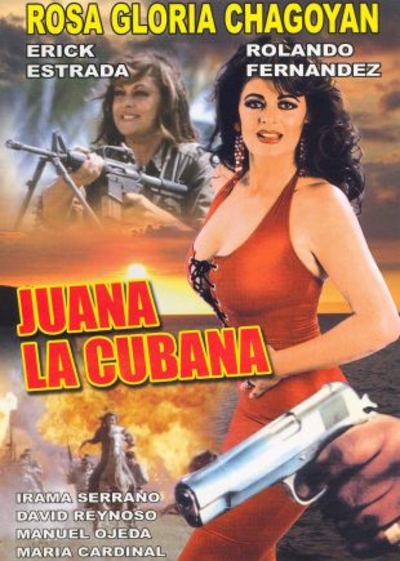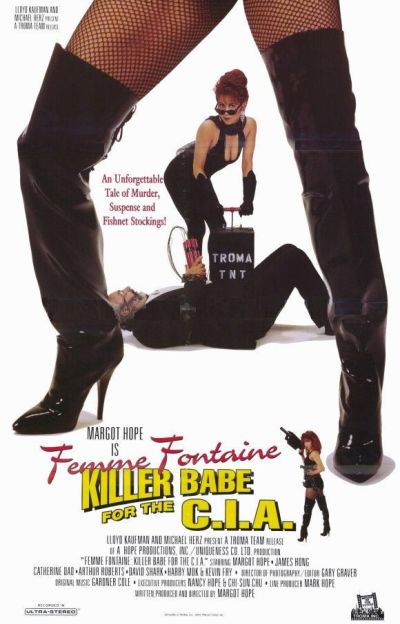★★★
“Eventually. Again.”
 Just as part 1, The Battles, meandered its way towards anything approximating conflict at a pace charitably described as leisurely, so anyone expecting hot Joan of Arc saint-in-prison action will probably want to get a cup of coffee. It’s around an hour and fifty minutes into this before Joan is even captured. Though as the whole thing does run for 176 minutes, there’s still plenty of time for subsequent events. But when the title says “prisons,” it means exactly that. Joan of Arc’s trial, an event that is typically depicted at length in most versions, is here discarded with a single intertitle. One moment, she’s standing on a ship being sent to the English, then there’s a caption “after four months of trial,” and the next scene sees her being sentenced.
Just as part 1, The Battles, meandered its way towards anything approximating conflict at a pace charitably described as leisurely, so anyone expecting hot Joan of Arc saint-in-prison action will probably want to get a cup of coffee. It’s around an hour and fifty minutes into this before Joan is even captured. Though as the whole thing does run for 176 minutes, there’s still plenty of time for subsequent events. But when the title says “prisons,” it means exactly that. Joan of Arc’s trial, an event that is typically depicted at length in most versions, is here discarded with a single intertitle. One moment, she’s standing on a ship being sent to the English, then there’s a caption “after four months of trial,” and the next scene sees her being sentenced.
This seems like Rivette, through and through. He doesn’t care what anyone else is interested in. He’s going to show the elements of the story which he wants to depict. I can understand where this approach comes from, simply because the trial of Joan is such a fixture of the story. If you can’t find anything new to say about it, why say anything at all? On the other hand, I’m not sure we needed to see, in its place, extended coverage of the coronation of Charles VII of France, apparently unfolding in real time. With Queen Elizabeth II’s funeral just a couple of weeks prior to viewing this, I had already reached my quota of royal pomp and circumstance for the month.
This does mark a turning point in the movie though. Thereafter, it becomes increasingly clear that Joan is losing her influence, being ignored or sidelined. After you have made a king, what more do you have to offer? She is fobbed off on to trivial, inconsequential missions, and Joan is ill-suited to survive the intrigue of court life. Her lack of value in a post-coronation world is driven home by Charles’s failure to ransom Joan after her capture; a price the English are happy to pay. “After four months of trial,” Joan is clearly broken, but they still aren’t done with her yet, intent on forcing her to become a relapsed heretic, with all the stake-related consequences.
Bonnaire is, as in the preceding entry, the main reason to watch this. The heroic confidence exhibited on her way up, is now replaced by a tragic sense of impending doom, which even Joan seems intuitively to sense. It’s all very naturalistic in approach, with Rivette keeping things simple to the point of sparseness. This does lead to the result feeling quite “dry”, and for a movie approaching three hours, there’s not a lot of emotional impact. Indeed, given the lack of spectacle, the movie puts almost all its weight on the shoulders of Bonnaire, and it’s fortunate her performance is up to the task. If it hadn’t been, this pair of films would have made for a very, very long six-hour double feature.
Dir: Jacques Rivette
Star: Sandrine Bonnaire, André Marcon, Jean-Louis Richard, Marcel Bozonnet





 The above refers to the title, and in particular “The Battles”. It is a solid two hours before anything more than handfuls of English and French troops lobbing rocks at each other show up. So if you are here for large-scale spectacle, keep on walking. You will be disappointed. I had a certain idea of what to expect, having seen Rivette’s immediately preceding film La Belle Noiseuse. Admittedly, I saw it largely because I had the hots for Emmanuelle Beart at the time. Otherwise, a four-hour movie, containing lengthy sequences of real-time painting would probably not have been on my radar. But I kinda liked its languid pace (the copious Beart nudity didn’t hurt, let’s be honest!), and so was prepared for things in this to unfold at a similarly leisurely pace.
The above refers to the title, and in particular “The Battles”. It is a solid two hours before anything more than handfuls of English and French troops lobbing rocks at each other show up. So if you are here for large-scale spectacle, keep on walking. You will be disappointed. I had a certain idea of what to expect, having seen Rivette’s immediately preceding film La Belle Noiseuse. Admittedly, I saw it largely because I had the hots for Emmanuelle Beart at the time. Otherwise, a four-hour movie, containing lengthy sequences of real-time painting would probably not have been on my radar. But I kinda liked its languid pace (the copious Beart nudity didn’t hurt, let’s be honest!), and so was prepared for things in this to unfold at a similarly leisurely pace. A long time ago – 17 years or thereabouts! – we reviewed another Chagoyan/Fernandez production,
A long time ago – 17 years or thereabouts! – we reviewed another Chagoyan/Fernandez production,  It’s difficult to put a finger on exactly what makes this so flat and uninteresting. The individual elements are fine – or, at least, don’t stand out as being particularly troublesome. However, the end product failed to hold my attention, particularly over the second half. It may be a case of the whole being considerably less than the sum of the parts, though if there was a single factor, I’d have to point at the story. This is probably too complicated for its own good, especially in a 90-minute movie: less would likely have been more.
It’s difficult to put a finger on exactly what makes this so flat and uninteresting. The individual elements are fine – or, at least, don’t stand out as being particularly troublesome. However, the end product failed to hold my attention, particularly over the second half. It may be a case of the whole being considerably less than the sum of the parts, though if there was a single factor, I’d have to point at the story. This is probably too complicated for its own good, especially in a 90-minute movie: less would likely have been more. Bonnie Blackwell (Lesseos) is a battered wife, whose husband, Zach (Bottoms), eventually goes too far, putting her in hospital. He gets a spell in prison, and she decides to take control of her life and become a police officer. However, the scars of her abuse run deep, and she finds herself initially “freezing” when faced with potential threats, due to the PTSD resulting from her abusive relationship. Encouraged by colleague Bill Starr (Douglas), she eventually manages to work her way past that, just in time for Zach to be released from jail without her knowledge. She discovers that he had been running a human trafficking operation, bringing in Vietnamese mail-order brides, and sets out to take him down.
Bonnie Blackwell (Lesseos) is a battered wife, whose husband, Zach (Bottoms), eventually goes too far, putting her in hospital. He gets a spell in prison, and she decides to take control of her life and become a police officer. However, the scars of her abuse run deep, and she finds herself initially “freezing” when faced with potential threats, due to the PTSD resulting from her abusive relationship. Encouraged by colleague Bill Starr (Douglas), she eventually manages to work her way past that, just in time for Zach to be released from jail without her knowledge. She discovers that he had been running a human trafficking operation, bringing in Vietnamese mail-order brides, and sets out to take him down. To explain the above, there are significant chunks of this which are terrible: make no sense, or are flat-out dumb. Its depiction of policing, in particular, is awful. Apparently, if you’re on a stakeout and a deal between two gangs has turned into a Mexican standoff, the best way to defuse the situation is to run downhill towards them, firing your gun in the air – and not bothering, at any point, to identif yourself as a law enforcement officer. I laughed like a drain at that, and there are innumerable other moments of such character stupidity or cinematic incompetence. Yet, none of that stopped me from being adequately entertained.
To explain the above, there are significant chunks of this which are terrible: make no sense, or are flat-out dumb. Its depiction of policing, in particular, is awful. Apparently, if you’re on a stakeout and a deal between two gangs has turned into a Mexican standoff, the best way to defuse the situation is to run downhill towards them, firing your gun in the air – and not bothering, at any point, to identif yourself as a law enforcement officer. I laughed like a drain at that, and there are innumerable other moments of such character stupidity or cinematic incompetence. Yet, none of that stopped me from being adequately entertained.


